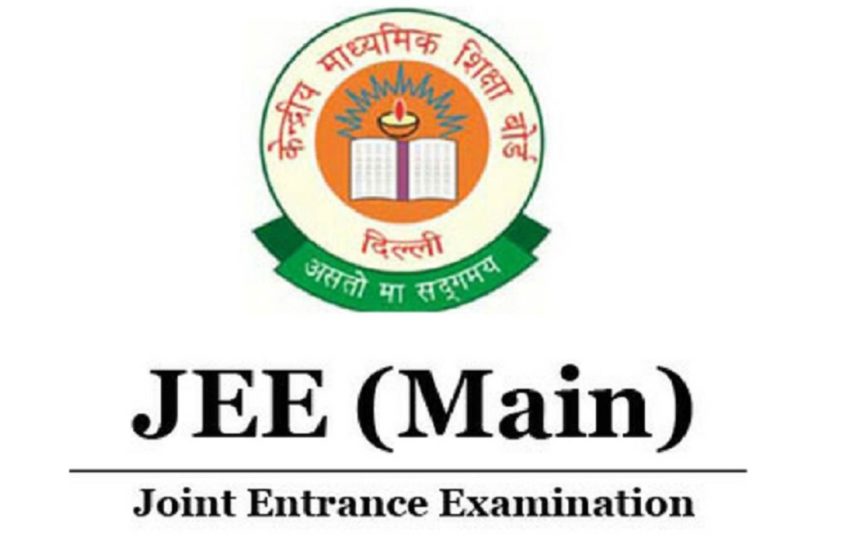JEE is the gateway to one of the most elite/prestigious colleges of India that go by the names NIT and IIT. It is a matter of social pride for many to be privileged to study in IITs or the NITs. Over 14 lakh aspiring engineering students appear for it every year but the success rate continues to remain harsh and results aren’t always exciting. The success rate is barely 0.1% for NIT and 0.05% for IIT. What makes a topper a topper?
Siddhant Mukherjee from Mumbai is among the 6 students who scored a 100 percentile in JEE Main 2021 February session exam (paper 1) and the state topper of Maharashtra. During his interview, he revealed his preparation strategies and how Covid-19 didn’t stop him from his dreams. He aims to get admission to a CSE program at IIT Bombay. He was also confident enough to not appear for further attempts of JEE Main to focus on JEE Advanced. Starting his preparation for JEE Advanced in 11th Grade, he shifted to preparing for Mains exams in the last 2 months before the JEE Mains exam. When he mentioned his schedule, it was evident that he had classes in the morning followed by practising papers in the afternoons, paper analysis, or self-study in the evenings. Apart from this, Covid-19 had an academic benefit for him because it saved nearly 2 hours a day of commuting which allowed him to make more out of the day. The only thing he wished was different was to have some amount of in-person interaction because that was more valuable than the time he saved. He also said in the interview how he solved nearly 30 previous year papers of JEE Mains and identified the topics with higher weightage or the ones that needed more extensive preparation. He highlighted the importance of taking mock tests while preparing for JEE Mains along with the previous years’ papers. Take a look at JEE Main Online Mock Test Series.
According to experts, JEE Mains candidates who practice previous year’s papers have a higher chance of cracking the exam than the ones who did not. NTA releases mock test series too on the official website. Here are 5 benefits of solving previous year’s papers.
- Analyzing the paper better
Previous year’s papers help candidates understand the types of questions that are asked often. A few have mentioned about 70-80 percent of the questions are repeated in the entrance examination. One of the tips to easily prepare for JEE is to get well versed with the past 10-15 year’s questions papers and analyze them after solving every paper.
- Finding your strengths and weaknesses
Analysis of papers helps you find out which concepts are your strengths, and the ones on which you need to work hard on/ drop them if they aren’t worth a lot of weightage. Understanding what concepts have a lot of weightage is important because it allows you to devote some time to mastering these concepts. It is important in the exam to avoid negative marking as much as possible. Many times, the reason we make silly mistakes is that we fail to read the questions properly. Hence solving previous year papers allows students to know the areas where they need to put in more effort/ the ones where they are losing marks in.
- Manage time
Most of the toppers and their success chants include effective time management. After all, your performance in JEE Main comes down to time, speed and accuracy. Building everything overnight is impossible. Time management on the other hand allows one to deal with all the complex concepts which can potentially fetch a lot of marks.
- Understanding the exam pattern
Understanding the exam pattern for any exam is crucial as it gives you an idea of how to manage time during the exam and how much time you can afford to spend on each problem. The exam pattern includes all the details regarding the duration of the exam, types of questions asked, etc. The previous year’s JEE Main question papers take you into the minds of JEE aspirants.
- Boosts confidence
Confidence plays an equally important role in keeping your mind fresh and remaining calm throughout the exam. It improves the scores significantly and then acing JEE Mains would be only a matter of time. One of the benefits of solving previous year’s papers is that it boosts the momentum of the candidates and allows them to picture writing the exam.
Given below are some of the important chapters and topics for JEE Mains.
Physics
Heat & thermodynamics, ray optics, electromagnetic waves, semiconductors, error and instrument analysis, gravitation, wave optics, photoelectric effect, oscillations, electromagnetic induction and alternating current, rotation, kinematics, electrostatics, current electricity and capacitors, properties of matter, magnetic effects of current and magnetism, Bohr’s atomic model, waves and sound are the topics with a high weightage.
On the other hand heat transfer, fluids, nuclear physics and x-rays, work, energy and power, units and measurements, dual nature of matter and radiation, circular motion, the centre of mass and collisions, communication system, and laws of motion are the topics with low weightage.
Chemistry
Atomic structure, gaseous and liquid state, electrochemistry, chemical kinetics, nuclear and surface chemistry, chemical bonding, d-block elements. Coordination compound, alkyl halides, aromatic compounds, thermodynamics, p-block elements, general organic chemistry, isomerism, aldehydes and ketones and carboxylic acids and their derivatives have a high weightage.
On the other hand chemical equilibrium, redox and volumetric analysis, solutions, metallurgy, qualitative analysis, hydrocarbons, mole concept, ionic equilibrium, solid-state, s-block elements, periodic classification, classification, and nomenclature alcohol and ether, nitrogen compounds and aliphatic amines, biomolecules and polymers have a relatively lower weightage.
Mathematics
3D geometry, vectors, determinant and matrices, sequence and series, straight line, circle. Probability distribution, definite integral and area under the curve, limits, continuity and differentiability, functions. Applications of derivatives, conic sections, complex numbers, quadratic equations, binomial theorem, and M.I. have high weightage.
Differential equation, differentiation. Trigonometric equation, statistics, mathematical logic, set and relation, height and distance, trigonometric ratio and functions. Properties of triangles, permutations and combinations, and indefinite integrals have a relatively lower weightage.
Stay calm and solve online mock test series along with previous years’ papers.













